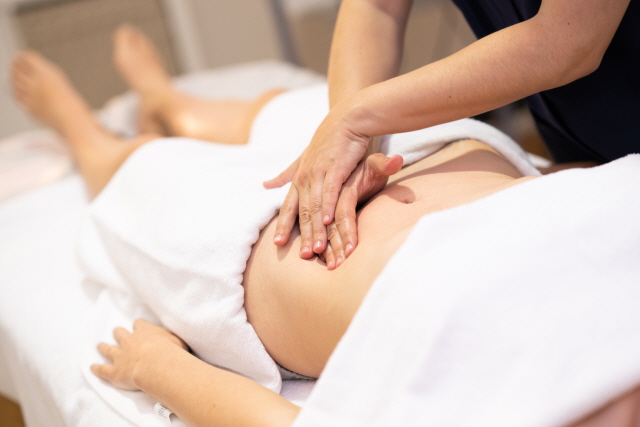
Treating Neurotic Symptoms Should Be Treated By Its Cause.
By Ju Bong Kang, KMD
In-depth understanding: Actions and Diagnosis
This prescription restores ying-wei’s disharmony and simultaneously calms and astringes qi and blood. Therefore, it can treat heart acceleration, abdominal palpitation, easily astonishing, dreaming a lot, hair loss, impotence, etc. Ying-blood and Wei-qi run inside and outside the channel and enter the organ to perform their functions. Suppose there is disharmony between ying and wei due to external infection or overwork and tension; the prescription of Guizhi-Tang or its family restores this. In addition, for the state in which the mind is unsteady and excited, the calming and suppressing excessive Yang drug is added to this prescription, and Guizhijia-Longgu-Muli-Tang is made and restores it.
There are various methods and drugs for recovering neurotic symptoms, such as anxiety, excitement, heart acceleration, and insomnia. For example, in the case of phlegm-retention, Erchen-Tang and Wendan-Tang containing Banxia and Fuling are used; in the case of Yin-deficiency, Tianwang-Buxin-Tang and Qingxin–Lianzi-Yin are used, which are prescriptions containing Shengdi-Huang and Maimendong; in the case of qi-deficiency, Guipi-Tang, a prescription containing Huangq, is used; in the case of triple energizer’s heat dominancy or Yangming pattern’s deficiency-vexation, Huanglian-Jiedu-Tang, or Zhizichi-Tang containing Huanglian or Zhizi are used.
The method of treating neurological symptoms in Guizhijia-Longgu-Muli-Tang is tranquilizing and calming by Longgu and Muli. Tranquilizing excitement and surprise by heavy mass drugs such as Longgu, Muli, or Daizheshi, and Zhusha is called “calming spirit by heavy-drug method,” it is used in Guizhijia-Longgu-Muli-Tang, Caihujia-Longgu-Muli-Tang, and Caihu-Guizhi-Ganjiang-Tang, etc.
In Guizhijia- Longgumuli-Tang prescription, Guizhi is a monarch drug, which activates Yang, strengthens heart-qi and dispels phlegm and dampness through sweat and urine. So it keeps the adverse-qi downwards, relieves pain and vexation, stops astonishing palpitation and running-pig syndrome, and calms the spirit by improving headache, chest fullness, body ache, etc. Shaoyao is a minister drug that harmonizes ying and wei with Gz and stops sweating; it tonifies yin and blood and calms the liver to alleviate symptoms of excessive liver-Yang such as vertigo, insomnia, impatience, irritability, etc.
Longgu and Muli become adjuvant drugs that calm the liver and tranquilize the mind. Longgu gathers soul, astringes floating qi. It restores symptoms such as convulsion-epilepsy, insane, palpitation, forgetfulness, insomnia, excessive dreaming, spontaneous sweat, night sweats, nocturnal emission, and stranguria with turbid urine. Muli suppresses the excessive Yang and improves symptoms such as convulsion epilepsy, palpitation, insomnia, irritability, anxiety, vertigo, stomachache, hyperacidity, tinnitus, spontaneous sweat, night sweats, scrofulosis, and nocturnal emission.
Shengjiang and Dajao help the digestive function of the spleen and stomach, assist Guizhi and Shaoyao produce and balance ying-qi and wei-qi, and become adjuvant drugs. Gancao has the function of benefiting-qi and not only becomes an adjuvant drug but mediates the functions of all other drugs, so it acts as a guiding drug. Therefore, this prescription can improve restlessness, epigastric and lesser abdominal palpitation, insanity, insomnia, poor memory, and excessive dreams, and relieves dizziness, tinnitus, spontaneous perspiration and night sweating, gastric acid, nocturnal emission, nightmare, and discharge from the womb.
In a diagnosis, abdominal hypertonicity, considered the signal symptom of Shaoyao, appears; headache, a feeling of chest fullness, and scant urination, signal symptoms of Guizhi, appear. The signal symptoms of the Longgu and Muli, epigastric or abdominal palpitation or palpitation below the navel, are checked. The pulse could be weak, hollow, and slow. This prescription is suitable for those who are not digesting well and do not eat much. Children with autism, Asperger syndrome, developmental disorders, or ADHD, tic symptoms can use it when they have abdominal palpitation or lesser abdomen palpitation.
Applications:
Vertigo, tinnitus, loss of hair, nervous prostration, insomnia, amnesia, neurotic palpitation, palm sweat, frequent urination, nightmare, nocturnal emission, leukorrhea, astonishment, gasping.
Differentiation
Guizhiqu-Shaoyaojia-Shuqilonggumuli-Juni-Tang: It is also called Juni-Tang in short, and that is used when the symptoms of Guizhijia-Longgumuli-Tang does not have the signal-symptom hypertonicity.
Caihujia-Longgu-Muli-Tang: This prescription includes a feeling of fullness over the chest and hypochondria of Caihu and epigastric glomus of Renshen and no hypertonicity of Shaoyao instead, in an abdominal diagnosis.
<Ingredients>
|
Guizhi |
pungent, sweet, warm |
桂枝 |
6g |
|
Shaoyao |
bitter, sour, slightly cold |
芍藥 |
|
|
Shengjiang |
pungent, slightly warm |
生薑 |
|
|
Dazao |
sweet, warm |
大棗 |
|
|
Longgu |
sweet, pungent, slightly cold |
龍骨 |
|
|
Muli |
salty, slightly cold |
牡蠣 |
|
|
Gancao |
sweet, mild |
甘草 |
4g |
































